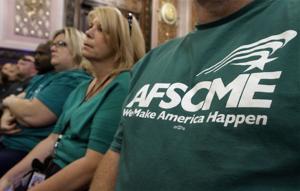Erie court issues summary judgment against union for concealing retirement benefit option

(The Center Square) – A state court issued a summary judgment this month against the union representing Erie Water Works employees for concealing a retirement plan option during contract negotiations in 2017.
Erie Court of Common Pleas Judge Daniel J. Brabender, Jr. said in an order filed Jan. 13 that the American Federation of State, County and Municipal Employees Local 2206 breached its duty “to act in good faith and in a reasonable manner” when union leaders misrepresented the retirement benefit options offered by the water company.
The Fairness Center filed the lawsuit on behalf of Mark Kiddo and seven other Erie Water Works employees who said AFSCME leaders forced a defined benefit retirement plan onto the union’s 20 members. The complaint alleges that the union concealed another option for a defined contribution plan with a $400 million retirement subsidy meant to bridge the gap in health care for those who retired before 65.
“We thought AFSCME was working for us,” Kiddo said when the lawsuit was filed in December 2018. “But it turns out our union leaders are willing to knowingly conceal information from us if it suits their purpose. We deserve fair and honest representation.”
In court documents, AFSCME argued that the employees understood there was a “trade off” in selecting the defined benefit plan over the defined contribution plan and that “plaintiffs failed to adduce facts sufficient to establish that the union’s choice of Option 2 over Option 1 was arbitrary, discriminatory, made in bad faith, or a breach of the duty of fair representation in the ratification process.”
Brabender rejected the union’s motion for a summary judgment in their favor, instead siding with Kiddo and the other members who filed suit.
“The undisputed material facts of this case demonstrate that AFSCME breached its duty of fair representation to all union activity by concealing Option 1 from its members and misrepresenting the terms ofEWW’s Final Offer,” he said in the ruling. “As a result of this conduct, the plaintiffs’ collective bargaining rights were violated and they lost the opportunity to realize higher wages and additional benefits.”
Disclaimer: This content is distributed by The Center Square
